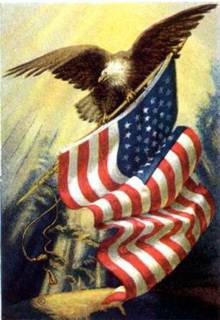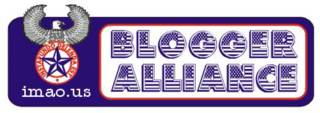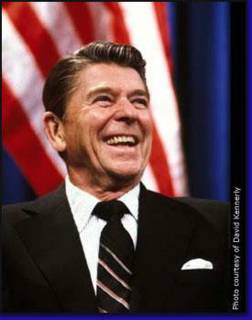Conservatives Take Canada, Trend Forming?
Conservatives win minority; Martin to step down as leader
By TERRY WEBER
Tuesday, January 24, 2006 Posted at 1:56 AM EST
Globe and Mail Update
Conservative Leader Stephen Harper was headed to Parliament Hill as Canada's next prime minister after capturing a fragile minority victory in Monday's election, picking up votes in Quebec and making inroads in Ontario but failing to scale the heights early polls had predicted.
"Tonight, friends, Canadians have voted for change," Mr. Harper said, speaking to supporters in Calgary.
"And Canadians have asked our party to take the lead in delivering that change. I tell Canadians we will respect your trust and we will stick to our words."
Mr. Harper's comments capped a night in which the Liberal's 12-year reign came to an end in a vote that handed the Conservatives a minority mandate but also held that power in check with a solid endorsement of opposition parties as well.
Shortly after midnight, Liberal Leader Paul Martin conceded defeat, telling supporters he had called his opponent to offer his congratulations and said he wouldn't lead the party in the next election.
"I will continue to represent with pride the people of LaSalle-Émard but I will not take our party in to another election as leader," he said.
"In the coming days, I will consult with the party leadership as to how best to ensure an orderly transition and an effective leadership in the House of Commons and the party."
By late in the night, the Conservatives had won 124 seats, to the Liberals' 103. The Bloc Québécois were elected in 51 ridings and the NDP in 29.
The Conservatives' gains came on the back of a swell in support in central Canada for the party, but the Liberals still managed to cling to seats in some key regions helping limit the Tories' overall advance.
By the end of the night, the Conservatives had managed roughly 36 per cent of the popular vote nationally compared with 30 per cent for the Liberals, 17 per cent points for the NDP and 10 per cent for the Bloc Québécois.
In Quebec, the Conservatives increased their share of the popular vote more than 17 percentage points, managing to win the parties first federal seat in that province in five years.
The Liberals' popular vote was down 14 percentage points. The shift also saw the Bloc's share of the popular vote slip 7 percentage points.
Similarly, in Ontario the Liberals' chunk of the popular vote was down 5 percentage points. In that province, the Liberals were elected in 55 seats — down from 74 in the last sitting — compared with the Conservatives' 39.
Mr. Harper — who was re-elected in the Alberta riding of Calgary Southwest — becomes this country's 22nd Prime Minister.
Speaking to supporters in Montreal, Mr. Martin thanked his supporters, not just for their help in the current campaign but for those in years past. He also paid tribute to his colleagues in his cabinet and caucus, praising their efforts and their role in creating a stronger nation.
"For many of our colleagues, it was not easy this evening," Mr. Martin said.
"But there will be another time."
With the likelihood of a minority looming, attention quickly turned to where the balance of power would lie.
The NDP, which ended the last sitting with 18 seats in the House of Commons, saw its fortunes rise dramatically, putting it in the position of king-maker in what could prove to be a fractious parliament. The party improved on its share of popular vote and managed double digit gains in terms of its seat count -- to 29 from 18.
Throughout much of the latter part of the 56-day campaign, polls had suggested the likelihood of a Conservative government, ending the Liberals' 12-year reign. At one point it even looked possible that Mr. Harper's Tories might even muster a majority, although polls closer to Monday night's vote suggested that was unlikely.
Mr. Martin was re-elected in the Quebec riding of LaSalle-Émard. The NDP's Jack Layton and the Bloc's Gilles Duceppe also retained their seats.
"Our Canada puts ordinary Canadians first and tonight ordinary Canadians in the millions put their trust in the NDP and took a step forward," Mr. Layton told an audience in Toronto.
"We won't let you down."

Canada's New Prime Minister Stephen Harper
Just a few months ago Germany elected a new Chancellor Angela Merkel

Both the New Chancellor of Germany and the New Prime Minister of Canada have said they want improved relations with the United States!
Welcome New Friends :-)
By TERRY WEBER
Tuesday, January 24, 2006 Posted at 1:56 AM EST
Globe and Mail Update
Conservative Leader Stephen Harper was headed to Parliament Hill as Canada's next prime minister after capturing a fragile minority victory in Monday's election, picking up votes in Quebec and making inroads in Ontario but failing to scale the heights early polls had predicted.
"Tonight, friends, Canadians have voted for change," Mr. Harper said, speaking to supporters in Calgary.
"And Canadians have asked our party to take the lead in delivering that change. I tell Canadians we will respect your trust and we will stick to our words."
Mr. Harper's comments capped a night in which the Liberal's 12-year reign came to an end in a vote that handed the Conservatives a minority mandate but also held that power in check with a solid endorsement of opposition parties as well.
Shortly after midnight, Liberal Leader Paul Martin conceded defeat, telling supporters he had called his opponent to offer his congratulations and said he wouldn't lead the party in the next election.
"I will continue to represent with pride the people of LaSalle-Émard but I will not take our party in to another election as leader," he said.
"In the coming days, I will consult with the party leadership as to how best to ensure an orderly transition and an effective leadership in the House of Commons and the party."
By late in the night, the Conservatives had won 124 seats, to the Liberals' 103. The Bloc Québécois were elected in 51 ridings and the NDP in 29.
The Conservatives' gains came on the back of a swell in support in central Canada for the party, but the Liberals still managed to cling to seats in some key regions helping limit the Tories' overall advance.
By the end of the night, the Conservatives had managed roughly 36 per cent of the popular vote nationally compared with 30 per cent for the Liberals, 17 per cent points for the NDP and 10 per cent for the Bloc Québécois.
In Quebec, the Conservatives increased their share of the popular vote more than 17 percentage points, managing to win the parties first federal seat in that province in five years.
The Liberals' popular vote was down 14 percentage points. The shift also saw the Bloc's share of the popular vote slip 7 percentage points.
Similarly, in Ontario the Liberals' chunk of the popular vote was down 5 percentage points. In that province, the Liberals were elected in 55 seats — down from 74 in the last sitting — compared with the Conservatives' 39.
Mr. Harper — who was re-elected in the Alberta riding of Calgary Southwest — becomes this country's 22nd Prime Minister.
Speaking to supporters in Montreal, Mr. Martin thanked his supporters, not just for their help in the current campaign but for those in years past. He also paid tribute to his colleagues in his cabinet and caucus, praising their efforts and their role in creating a stronger nation.
"For many of our colleagues, it was not easy this evening," Mr. Martin said.
"But there will be another time."
With the likelihood of a minority looming, attention quickly turned to where the balance of power would lie.
The NDP, which ended the last sitting with 18 seats in the House of Commons, saw its fortunes rise dramatically, putting it in the position of king-maker in what could prove to be a fractious parliament. The party improved on its share of popular vote and managed double digit gains in terms of its seat count -- to 29 from 18.
Throughout much of the latter part of the 56-day campaign, polls had suggested the likelihood of a Conservative government, ending the Liberals' 12-year reign. At one point it even looked possible that Mr. Harper's Tories might even muster a majority, although polls closer to Monday night's vote suggested that was unlikely.
Mr. Martin was re-elected in the Quebec riding of LaSalle-Émard. The NDP's Jack Layton and the Bloc's Gilles Duceppe also retained their seats.
"Our Canada puts ordinary Canadians first and tonight ordinary Canadians in the millions put their trust in the NDP and took a step forward," Mr. Layton told an audience in Toronto.
"We won't let you down."

Canada's New Prime Minister Stephen Harper
Just a few months ago Germany elected a new Chancellor Angela Merkel

Both the New Chancellor of Germany and the New Prime Minister of Canada have said they want improved relations with the United States!
Welcome New Friends :-)








































2 Comments:
You'll be surprised, Marie, to hear me welcome the conservatives in Canada and Germany.
Germany and Canada have guaranteed health care for all of their citizens.
The conservatives in the US do not support this.
Germany and Canada outlawed the death penalty.
The conservatives in the US support the use of the death penalty. The US is the only Western democracy that does so.
Germany and Canada did not support our invasion of Iraq.
Germany and Canada support a woman's right to abortion without any restrictions.
Germany and Canada have strict gun control laws, including, but not limited to universal registration, and restrictions on ownership of particular forms of firearms.
So, as you welcome our German and Canadian "conservatives," I too join you.
Theirs is a form of "conservatism" every liberal can be proud of.
Shaw
Yes and the New PM of Canada is going to do something else the Liberal Canadian govt. never did, Arm The Border Patrol! And he also supports the Iraq war.
The people in Canada and Germany knew they blew it, that's why they elected people that want better relations with the US.
Maybe Chirac will be next! One can only hope :-)
Post a Comment
<< Home